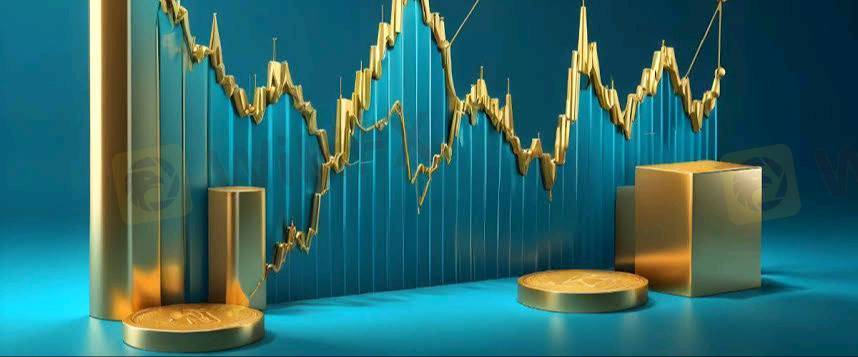
2025-02-05 06:59
NgànhThe Role of Central Banks and Government Stimulus
#firstdealofthenewyearFateema
The Role of Central Banks and Government Stimulus on Inflation.
Central banks and government stimulus measures play a significant role in influencing inflation through their impact on money supply, interest rates, and economic growth expectations. Understanding their actions and policies is crucial for investors seeking to manage inflation risks and opportunities in their portfolios, including the potential role of gold as an inflation hedge.
Central Banks' Role in Influencing Inflation
Monetary Policy: Central banks use monetary policy tools, such as setting benchmark interest rates and conducting open market operations, to influence the cost of borrowing, economic growth, and inflation. Lower interest rates stimulate economic activity and can lead to higher inflation, while higher interest rates can curb inflationary pressures by dampening demand.
Quantitative Easing (QE): Central banks may also resort to unconventional measures like QE, which involves purchasing large amounts of government bonds and other assets to inject liquidity into the economy. While QE aims to boost economic growth, it can also fuel inflation by increasing the money supply.
Government Stimulus and Its Impact on Inflation
Fiscal Policy: Governments use fiscal policy tools, such as changes in government spending and taxation, to influence aggregate demand and economic growth. Expansionary fiscal policies, like increased government spending or tax cuts, can stimulate economic activity and inflation, while contractionary policies can have the opposite effect.
Government Debt and Deficits: Large-scale government stimulus measures can lead to increased government debt and fiscal deficits. High levels of debt may raise concerns about a country's fiscal sustainability and could result in inflationary pressures if investors demand higher yields on government bonds or if central banks monetize the debt through QE.
In a post-COVID economy, central banks and governments worldwide have implemented aggressive stimulus measures to support economic recovery. While these measures aim to mitigate the pandemic's negative impact, they may also fuel inflationary pressures. Investors should closely monitor policy developments and their potential effects on currency values and inflation to make informed decisions about their portfolio strategies, including the potential role of gold as an inflation hedge.
Thích 0
FX7315030252
Trader
Bình luận phổ biến
Ngành
Có cao quá k?
Ngành
Xin ý kiến liberforex
Ngành
Đầu tư CDG
Ngành
Cắt lỗ
Ngành
Có nên chốt lỗ?
Ngành
Hỏi về dòng tiền
Phân loại diễn đàn

Nền tảng

Triển lãm

IB

Tuyển dụng

EA

Ngành

Chỉ số thị trường

Chỉ số
The Role of Central Banks and Government Stimulus
 Ai Cập | 2025-02-05 06:59
Ai Cập | 2025-02-05 06:59#firstdealofthenewyearFateema
The Role of Central Banks and Government Stimulus on Inflation.
Central banks and government stimulus measures play a significant role in influencing inflation through their impact on money supply, interest rates, and economic growth expectations. Understanding their actions and policies is crucial for investors seeking to manage inflation risks and opportunities in their portfolios, including the potential role of gold as an inflation hedge.
Central Banks' Role in Influencing Inflation
Monetary Policy: Central banks use monetary policy tools, such as setting benchmark interest rates and conducting open market operations, to influence the cost of borrowing, economic growth, and inflation. Lower interest rates stimulate economic activity and can lead to higher inflation, while higher interest rates can curb inflationary pressures by dampening demand.
Quantitative Easing (QE): Central banks may also resort to unconventional measures like QE, which involves purchasing large amounts of government bonds and other assets to inject liquidity into the economy. While QE aims to boost economic growth, it can also fuel inflation by increasing the money supply.
Government Stimulus and Its Impact on Inflation
Fiscal Policy: Governments use fiscal policy tools, such as changes in government spending and taxation, to influence aggregate demand and economic growth. Expansionary fiscal policies, like increased government spending or tax cuts, can stimulate economic activity and inflation, while contractionary policies can have the opposite effect.
Government Debt and Deficits: Large-scale government stimulus measures can lead to increased government debt and fiscal deficits. High levels of debt may raise concerns about a country's fiscal sustainability and could result in inflationary pressures if investors demand higher yields on government bonds or if central banks monetize the debt through QE.
In a post-COVID economy, central banks and governments worldwide have implemented aggressive stimulus measures to support economic recovery. While these measures aim to mitigate the pandemic's negative impact, they may also fuel inflationary pressures. Investors should closely monitor policy developments and their potential effects on currency values and inflation to make informed decisions about their portfolio strategies, including the potential role of gold as an inflation hedge.
Thích 0
Tôi cũng muốn bình luận.
Đặt câu hỏi
0bình luận

Chưa có người bình luận, hãy là người bình luận đầu tiên

Đặt câu hỏi
Chưa có người bình luận, hãy là người bình luận đầu tiên